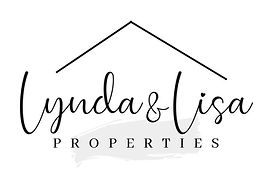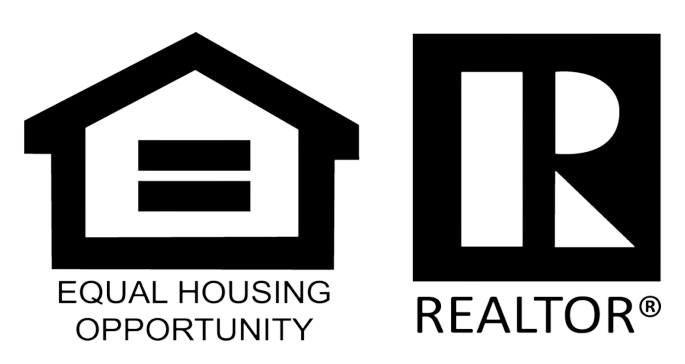Stepping into the realm of homeownership for the first time is both exhilarating and daunting. This essential guide is crafted to shine a light through the complexities of purchasing a home, guiding you from the initial consideration of your budget to the joyful moment of obtaining your keys. It aims to arm you with vital knowledge and strategies, fostering confidence and informed decision-making in your pursuit.

Emotional Balance: The Key to a Successful Home Purchase
In the whirlwind of searching for the perfect first home, it’s natural to fall head over heels for a property that seems to tick every box on your wish list. However, allowing emotions to steer the decision-making process can cloud judgment and potentially lead to decisions you might regret. Keeping emotion at bay during real estate transactions is not just advisable; it’s imperative for several reasons.
Firstly, emotional attachment can impair your ability to negotiate effectively. When you’re emotionally invested in a property, you might overlook critical flaws or make concessions that are not in your best interest simply because you can’t bear the thought of losing what you’ve already envisioned as your future home. This can also lead to overpaying for a property, straining your financial stability and possibly causing long-term regret.
Secondly, the real estate market is inherently unpredictable, and deals can fall through for numerous reasons beyond your control—such as issues discovered during the home inspection, appraisal discrepancies, or last-minute financing challenges. If you’ve already formed an emotional bond with the property, these unforeseen obstacles can be deeply disheartening, transforming what should be an exciting journey into a source of stress and disappointment.
Moreover, emotional attachment can cloud your judgment, making it challenging to walk away from a deal that’s not right. It’s essential to remember that there are always other properties out there, and making decisions based on logic and financial sensibility is crucial. Detaching emotionally allows you to evaluate properties objectively, negotiate from a place of strength, and ultimately make decisions that align with your long-term goals and financial well-being.
While feeling excitement and anticipation when searching for your first home is natural, maintaining a level head and controlling emotions is crucial. This approach protects you from potential disappointment and positions you to make wise, informed decisions that will benefit you for years to come.
Crunching the Numbers: Understanding Financial Metrics in Home Buying
When stepping into the realm of homeownership, grappling with the financial metrics can seem daunting. Yet, understanding key figures such as your credit score, debt-to-income (DTI) ratio, and the 28/36 rule is crucial for securing a mortgage that fits your budget and long-term financial health. This section delves into these critical numbers, clarifying how they influence your ability to purchase a home and the terms of your mortgage. By mastering these financial principles, you position yourself for a smoother, more confident journey toward securing your dream home.
Your credit score is a pivotal factor in home-buying, acting as a snapshot of your financial reliability. Lenders use this score to determine your eligibility for a mortgage and the interest rates you’ll be offered. A higher score can lead to more favorable loan terms, making it essential to understand your credit standing and take steps to improve it if necessary.
The DTI ratio is another critical metric, measuring the proportion of your gross monthly income that goes toward paying off debts. Lenders use this ratio to assess your ability to manage monthly payments on a new mortgage. Typically, a DTI ratio of 43% or lower is preferred, but the lower your DTI, the stronger your candidacy for a loan.
Lastly, the 28/36 rule suggests that no more than 28% of your gross monthly income should go towards housing expenses, while no more than 36% should be allocated to total debt obligations, including your future mortgage. Adhering to this rule can help ensure you’re not stretching yourself too thin financially, balancing your housing costs and other financial responsibilities.
Understanding and optimizing these financial metrics can greatly enhance your home-buying prospects, leading to a more favorable mortgage application outcome and a financially sustainable future in your new home.
Securing Your Financial Foundation: The Essentials of Home Buying Preparedness
Financial preparedness is a cornerstone of a smooth home buying experience, involving more than just qualifying for a mortgage. Key components of this preparedness include the earnest money deposit, down payment, and closing costs—each playing a unique role in the transaction and impacting your cash flow. Understanding these elements and their implications on your finances equips you with the knowledge to navigate the financial aspects of buying a home, ensuring you are ready for the responsibilities and expenses of this significant decision.
The earnest money deposit is your first step into the financial commitment of buying a home. It’s a sign of good faith to the seller that you are serious about your offer and intend to purchase the property. This deposit, typically 1% to 3% of the purchase price, is made when your offer is accepted and held in an escrow account until closing. It’s important to note that this is indeed a cash-out-of-pocket expense but is credited towards your down payment or closing costs at closing.
Next is the down payment, a substantial cash payment towards the purchase price of your home, which directly influences your mortgage amount. The down payment size can vary, often ranging from 3% to 20% of the home’s price, depending on the type of loan and your financial situation. This payment is crucial as it affects your loan-to-value ratio, mortgage interest rates, and whether you must pay for private mortgage insurance (PMI). Like the earnest money deposit, the down payment is a cash-out-of-pocket expense that requires significant savings and financial planning.
Lastly, closing costs encompass a variety of expenses associated with finalizing the mortgage and transfer of ownership, including appraisal fees, title insurance, and legal fees. These costs typically range from 2% to 5% of the loan amount and are due at closing. While some programs and negotiations can reduce the amount you need to pay out of pocket, it’s vital to be prepared for these costs as they are generally paid in cash at the time of closing.
Preparing for these financial obligations ensures you are not caught off guard by the upfront costs of buying a home. By planning for these expenses, you secure a strong financial foundation supporting a successful homeownership transition.
Crafting a Realistic Budget: Beyond the Mortgage in Home Affordability
Creating a realistic budget for buying a home requires a comprehensive look at your finances beyond just the mortgage payment. Understanding how much house you can afford involves examining several factors, including real estate prices influenced by location and additional homeownership costs like property taxes, homeowner’s insurance, potential HOA fees, and utilities. This meticulous approach ensures that you not only select a home within your means but also anticipate the ongoing expenses of homeownership, fostering a financially sustainable lifestyle in your new residence.
Location plays a pivotal role in determining real estate prices, with homes in desirable areas commanding higher prices due to factors like school quality, proximity to employment hubs, and neighborhood amenities. However, a higher-priced home in a sought-after location could mean higher associated costs, not just in terms of the purchase price but also property taxes and possibly even homeowner’s association (HOA) fees, if applicable. These location-driven costs must be factored into your budgeting.
Beyond the purchase price, it’s essential to account for the recurring costs of owning a home. Property taxes can vary significantly by location and can increase over time, directly impacting your monthly housing expenses. Homeowner’s insurance is another critical cost, protecting your investment in the event of damage or loss, with premiums varying based on the home’s value, location, and other risk factors. If your new home is part of a community with an HOA, monthly or annual fees for maintenance and amenities will also influence your budget.
Utilities and maintenance are additional expenses that can fluctuate based on the size and condition of the home and usage patterns. These costs include electricity, water, sewage, gas, and internet, and funds set aside for repairs and upkeep. Failing to incorporate these expenses into your budget could lead to financial strain.
In crafting a realistic budget, the goal is to ensure that your total housing costs—including the mortgage, taxes, insurance, HOA fees, utilities, and maintenance—do not stretch your finances too thin. Adhering to the general guideline that your housing expenses should not exceed 30% of your gross monthly income can help maintain your financial balance, allowing you to enjoy homeownership without undue financial pressure.
Choosing the Right Real Estate Agent: A Partner in Your Home Buying Journey
Selecting the right real estate agent is a crucial step in the home-buying process, one that can significantly influence your experience and the outcome of your transaction. A proficient agent serves as a guide through the intricate journey of home buying and as a knowledgeable advocate representing your interests at every turn. Their expertise, market insight, and negotiation skills are invaluable assets that can help you find your ideal home within your budget and ensure a smooth transaction.
The right agent should deeply understand the local real estate market, including current listings, neighborhood dynamics, and pricing trends. This knowledge enables them to identify properties that meet your criteria and advise you on making competitive offers. Additionally, an agent’s negotiation expertise is crucial in securing a fair deal, addressing any issues that arise during the inspection process, and navigating the complexities of the closing process.
Building a strong, communicative relationship with your agent is fundamental. You want someone who listens to your needs, understands your budget constraints, and respects your decision-making process. A good agent will tailor their search and advice to fit your unique situation rather than pushing their own agenda or rushing you through the process.
Moreover, the right agent can provide a network of trusted professionals, including mortgage brokers, home inspectors, and legal advisors, further easing the home-buying process. Their recommendations can save you time and ensure you work with reliable experts.
In choosing a real estate agent, consider their experience, track record, and compatibility with your communication style and needs. Interviews and referrals from satisfied clients can offer insight into an agent’s performance and reliability. Remember, the goal is to find an agent who feels like a partner; someone committed to helping you achieve your dream of homeownership with as much ease and as little stress as possible.
Identifying What Matters: Key Considerations and Red Flags in Home Selection
When searching for your first home, knowing what to look for and what to avoid is as crucial as any other step in the home-buying process. While personal preferences on style, size, and location will vary, certain universal considerations can help you make a well-informed decision. Identifying potential red flags before you commit can save you from future headaches and financial strain.
Structural integrity is paramount when assessing a potential home. Look for signs of foundational issues, such as cracks in the walls or uneven floors, which could indicate significant and costly problems. A well-maintained roof is also critical, as replacements or repairs can be expensive. Look out for missing tiles or shingles, signs of water damage, or a sagging roofline.
The condition of the electrical system, plumbing, and HVAC units are other vital considerations. Outdated systems not only pose safety hazards but can also lead to substantial repair or replacement costs. Ensure that the electrical system can handle modern demands, the plumbing shows no signs of leaks or water damage, and the HVAC system is in good working order.
Another red flag is poor drainage around the property. Improper drainage can lead to water intrusion into the basement or crawl space, potentially causing structural damage and mold growth. Look for signs of pooling water or erosion near the foundation.
Beyond these physical aspects, consider potential lifestyle impacts. High noise levels from nearby roads or businesses, limited parking, and lack of green spaces can affect your living experience. Additionally, research the local area for future development plans that could influence your home’s value or living conditions.
While cosmetic issues like paint color or outdated fixtures are easily changeable, significant problems such as structural defects, outdated systems, and poor location characteristics should give you pause. A thorough home inspection is a crucial step in identifying these red flags, providing you with the information needed to decide whether to proceed with the purchase. Prioritizing homes that meet your essential criteria while remaining vigilant for potential problems will guide you toward a sound investment property and a comfortable and safe place to call home.
Mastering Offers and Negotiations: Strategies for Success
Making an offer on a home and navigating the subsequent negotiations are pivotal moments in the home-buying process. This stage requires a blend of market knowledge, strategic thinking, and clear communication. By understanding how to craft a compelling offer and effectively negotiate, you can position yourself to secure your desired home on favorable terms.
Your offer is more than just the price you’re willing to pay; it includes several components such as the earnest money deposit, proposed closing date, contingencies (like financing or inspection), and any personal requests, such as leaving certain appliances. An offer that’s both competitive and realistic, reflecting current market conditions and the home’s condition, is more likely to be accepted. Your real estate agent’s insight is invaluable here, helping you to determine an appropriate offer based on comparative market analysis (CMA) and other relevant factors.
Negotiation is an art that involves more than simply haggling over price. It’s about finding a mutually agreeable solution where both parties feel they’ve achieved a fair outcome. Flexibility on non-price terms, such as closing dates or contingencies, can often be just as persuasive as adjusting the offer amount. Effective negotiation also means being prepared to walk away if the terms aren’t right, a difficult but sometimes necessary decision to avoid overpaying or accepting unfavorable conditions.
Communication during this phase is critical. Ensuring that your intentions and concerns are clearly articulated through your agent helps prevent misunderstandings and builds a positive rapport with the seller. Additionally, quick responses to counteroffers or questions can keep momentum and demonstrate your seriousness about the purchase.
Finally, understanding that negotiation is a two-way process is key. Both parties have their own needs and limits, and successful negotiations often involve compromise. Keeping a level head and focusing on your ultimate goal—purchasing a home that meets your needs and financial situation—can guide you through this challenging yet rewarding phase of the home-buying journey.
Understanding the Closing Process in Home Buying
The closing process, often seen as the final hurdle in the home-buying journey, marks the transition from buyer to homeowner. This stage involves a series of important steps, each meticulously designed to ensure a smooth transfer of ownership. Typically lasting between 30 to 45 days, the timeline can vary based on financial, legal, and regional factors. It begins with signing a purchase agreement and culminates on closing day when the keys change hands.
Initially, buyers must secure financing, which includes obtaining a final loan approval from their lender. Concurrently, the home undergoes a thorough appraisal and inspection, ensuring the property’s value and condition meet both the buyer’s and lender’s standards. During this period, title searches and insurance come into play, protecting against potential legal issues tied to property ownership.
As the closing date approaches, buyers receive a closing disclosure, a critical document that outlines loan details, closing costs, and any outstanding fees. This review period is crucial for clarity and understanding of the financial aspects of the purchase. Finally, the closing meeting is where all parties involved gather to sign the necessary documents, including the mortgage note and the deed, legally transferring ownership.
This meticulous process, while complex, is facilitated by professionals such as real estate agents, attorneys, and mortgage lenders, who ensure that every detail is accounted for. Their guidance helps demystify the closing steps, making them a more navigable experience for buyers. Understanding these stages prepares individuals for what lies ahead and empowers them to confidently take this significant step toward homeownership.
Embarking on Your Homeownership Dream
As you stand on the threshold of homeownership, equipped with the knowledge and insights to navigate this significant life milestone, remember that you’re not alone in this journey. The path to finding and purchasing your first home is filled with opportunities, challenges, and decisions that shape your future. Whether you’re deciphering financial metrics, exploring neighborhoods, or negotiating the terms of your purchase, each step brings you closer to the goal of owning a home that meets your needs, reflects your desires, and aligns with your financial plans.
When you’re ready to take the next step toward homeownership, reach out for personalized guidance and expert advice. As your dedicated real estate partner, we are here to support you through every phase of the home-buying process, from the initial search to closing day. Together, we’ll navigate the complexities of the real estate market, ensuring your journey is as smooth and successful as possible. Contact us when you’re ready to turn your homeownership dreams into reality.


